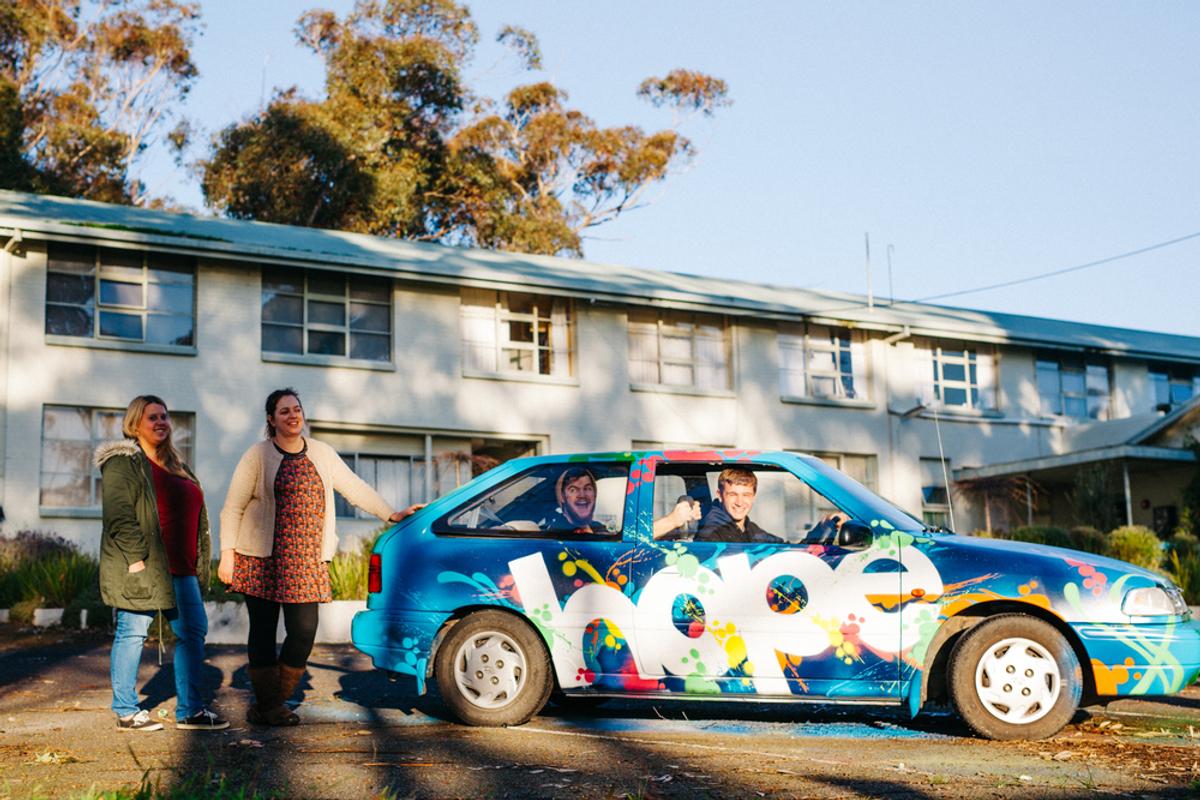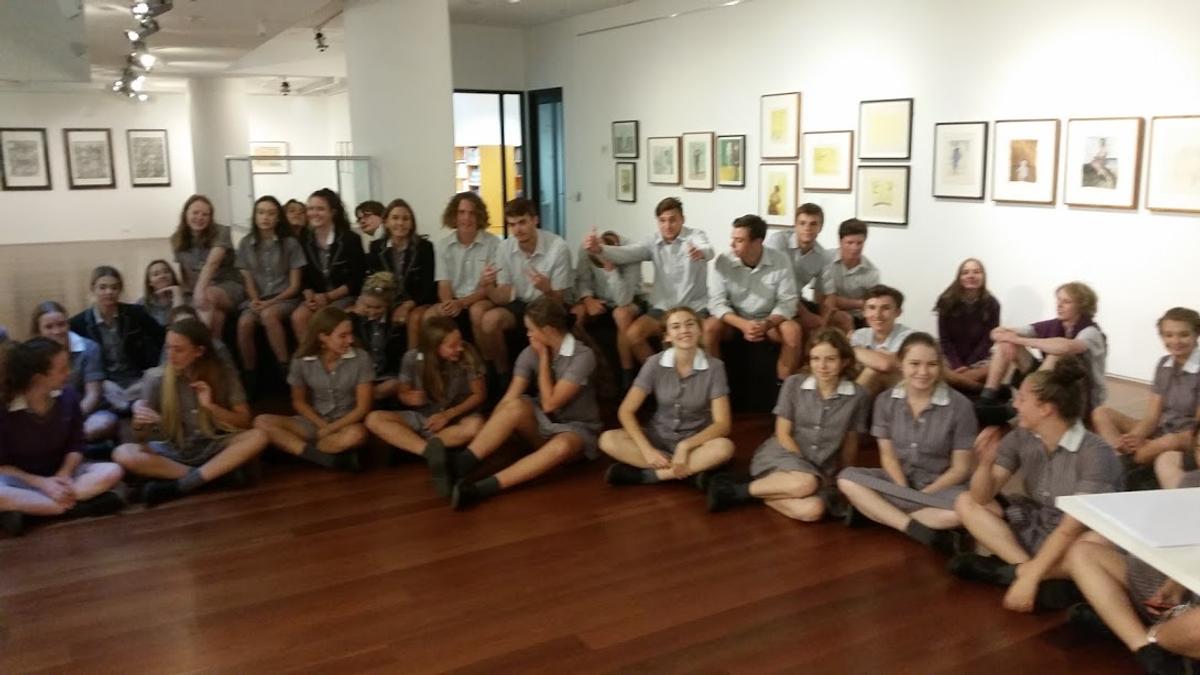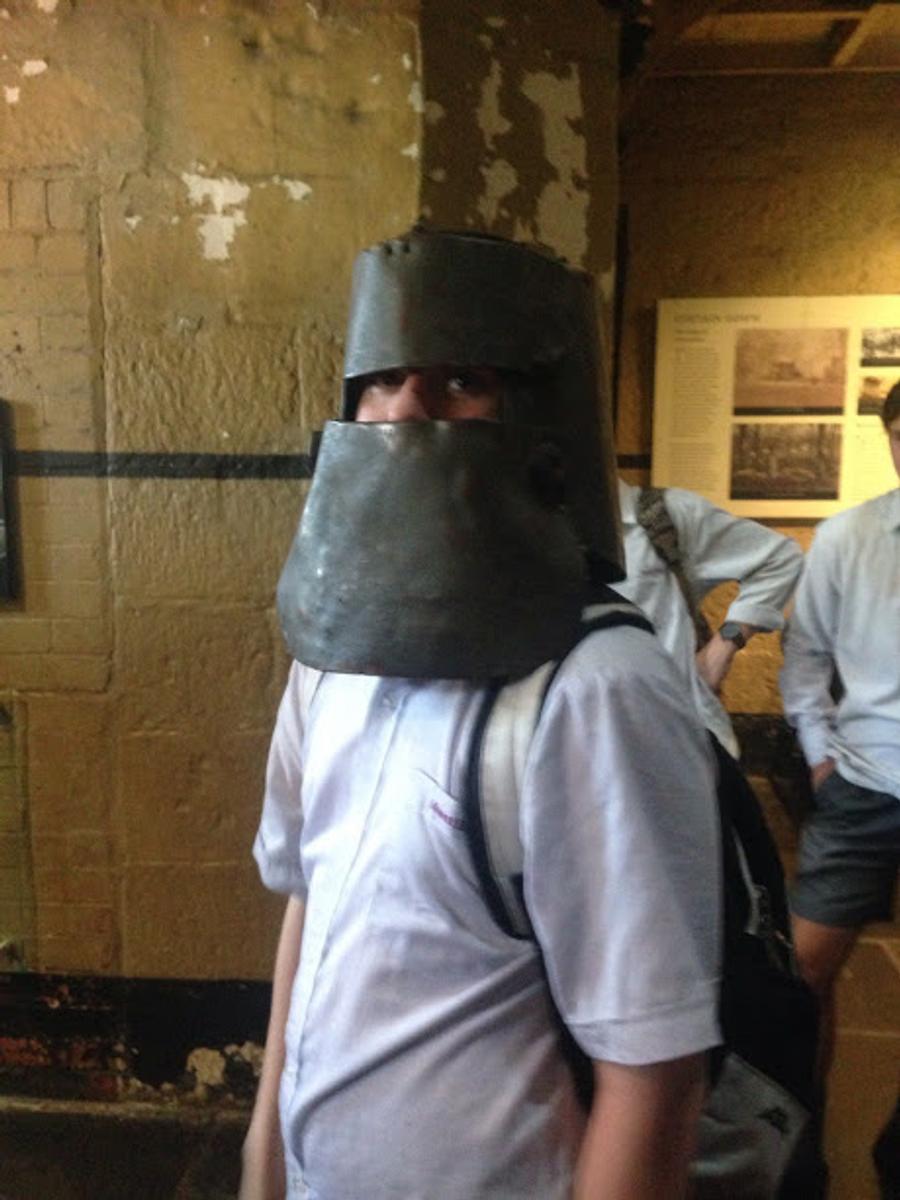Year 11 Psychology

Year 11 Psychology
Introduction to our investigations of mental illness:










Throughout term 2, our class performed an in depth study about mental illnesses, we were required to construct a website that would later be presented to the class. The website was to consist of a certain mental illness or disorder that we would have to study, understand and share.
Our studies allowed us to really understand just how common and how detrimental some mental illnesses and disorders are, for an example, 350million people on this planet will suffer from some extent of depression throughout their lifetime.
Along with our studies we had the opportunity to spend a day in the city learning about how the treatment for depression and mental disorders have changed over the years, to do this we visited the Old Melbourne Gaol and the DAX gallery. Whilst at the Melbourne Gaol we were taken on a tour all throughout the campus, learning about how prisoners were treated in the late to early 1800's-1900's. We later visited the DAX gallery where we were spoken to about how different mental conditions affects people's ability to make art. Recently we made a visit to "Fusion" in Mornington. Fusion runs a programme that assists with people aged 15 and 9 months to 21 to ensure that they stay off the streets and have a roof over their heads. They've developed programs that allow for these people to interact better with society and even work towards changing their lives for the good.
We recently had a guest speaker visit (Joel) and speak to us about his upbringing, unfortunately Joel went through an extremely rough patch and resorted to drugs and alcohol. Joel first started using alcohol when he was only aged 7, Joel was later diagnosed with a series of mental illnesses and disorders, thankfully Joel has been able to recover from some of his conditions and now performs public speaking to raise awareness.
Harry Day
“Mental health - It’s all about connections, community and purpose”
Mental health refers to a person’s condition with regard to their psychological and emotional well-being. Mental health is driven by the connections, support network and family people have surrounding them. It is also massively influenced by the direction and purpose a person has to aspire to. If a person has purpose, this helps them feel valued, it gives them a reason to get up in the morning and go about tackling life with an optimistic mindset. If somebody is lacking in any of these areas they are more susceptible to be diagnosed with a mental illness. If somebody comes to you for help regarding their mental illness it is important to recognise which factors in their life need improvement, whether it be lack of connections, lack of self-worth or purpose, these are the key factors that will aid people in their road to recovery, and the stability of these factors contributes positively to their overall state of mental wellbeing.
Organisations such as Fusion provide young people with a stable living environment where they can thrive and maintain healthy relationships within the facility with other young people who share similar traumatic experiences which lead them to a life of homelessness; whether that be on the streets or couch surfing. Many people arrive at fusion troubled and often most are diagnosed with some form of mental illness. Fusion help completely transform the lives of these young people because they focus on providing a safe stable, living environment, a community oriented lifestyle. This helps the young people establish a strong support network and give them something to aspire to with their goal setting program. Some people take more time to leave the facility than others, but most leave with their mental illness under control. They feel a lot happier because they have established that healthy support group and sense of community and even most leave with a stable job that gives them purpose and something to aspire to. All these factors created a good mental health status for the young people and have helped them get their life back on track.
Joel Chatelier is a 34 year old man who had a troubled past that lead him to make poor decisions for himself ie. excessive drug use. The combination of a rough past, poor choices and his genetic history, triggered the onset of many mental illnesses.
When Joel decided to get his life back on track one of the many factors that helped him through his transition, was the support network and family he had around him. It was the sense of community around Joel that gave him the push he needed, to make up for the bad choices he made and get him the help he needed by investing in a therapist, who would help him confront his troubled past of abuse. Joel has two sons that are a big part of his life, they keep him grounded and give him that little bit of responsibility he needs to keep him on the right track because he knows he needs to be a role model for them.
Today, Joel speaks at the DAX gallery and local high schools educating and raising awareness of mental illness, by providing his personal stories and offering support for kids going through a difficult time and giving them someone to relate to. This gives Joel purpose and he now has a more positive outlook on life.
It is from these examples that we can conclude that it is support networks, connection to society and purpose that contributes to a better mental health.
Piieta and Kirsty
“The battles of having a mental health issue”
I was diagnosed recently, aged 16. I knew within myself that I already had depression and had been living with it for around a year.
Imagine waking up and just hating everything. I have never thought of myself as a negative person but negative thoughts are all I can think about. I can onIy think about how horrible everything is. I aways ask myself whats the point? Like why should I get up today to go to school, to try my hardest to get though the day just to get an education. Just to go to university. Just to be a part of the majority. Who will remember me, or what I've done? the people I know? Well one day they'll all be gone and none of us will matter. So again, whats the point of life? unless I do something amazing
The smallest tasks - everyday task seemed to be huge obstacles, for example getting out of bed, I've never liked getting out of bed, who does? But I would be able to get up within a minute or so. Now it takes a good half an hour. I leave myself with twenty minutes to get ready in the morning because I struggle so much to get out of bed. That's not the only struggle. I'm always tired. The kind of tired where you cannot keep your eyes open to save your life. Being so tired also means I cannot concentrate for longer than half an hour. Making school incredibly hard.
I did not realise at the time but I was slowly distancing myself from everyone. My friends and family. People would do something, something I would usually never second think but the depression made me over think it. Hate it and hate my friends. I felt guilty, guilty that I hated my friends when they had done nothing to hurt me. I hated the world and thought it was a horrible place. I'm still not at peace with the world and I think it will take me a long time to come to terms with poverty, war and all the destruction going on.
I was put on medication two weeks after being diagnosed with moderate depression. It helps but it doesn't fix things. People think that antidepressants will cure the depression but they don’t. I have to help myself get better by not giving up. I have to push through my fatigue and demotivation, go to school, to do my homework and to go to work. I make sure that I still do the things I enjoy, such as drawing - being creative. I always make myself do something on the weekend to be social. I try to eat healthy, not that it works and I also try to exercise. To keep myself occupied is what helps the most.
I decided to be open about my depression. I'm an open person and to hide this big piece of information of myself didn't seem right. I know other people who keep it a secret which is fair enough. I'm not embarrassed that I have depression and like someone once said to me “having a mental illness is no different to have a physical illness, it is apart of us and will not go away with out help.”
I hope that one day I can recover and live with happiness but for now I know there is still a lot more work to do. No matter how hard it is never resist getting help. someone saying “I need help” is one of the bravest things.
In today's society I have access to medication and therapy where I am able to speak openly about my feelings. I have a great support network o